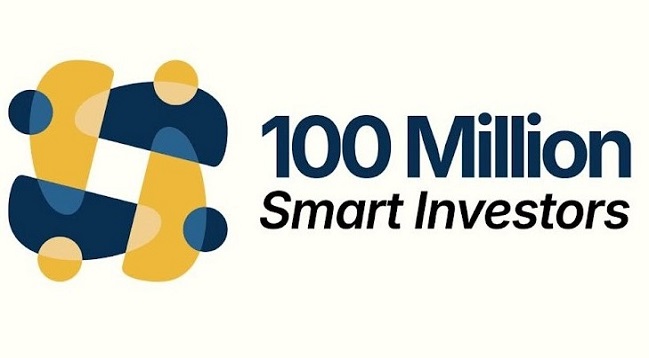E-Financial
Banks Spend N34.2Bn on IT, e-Business Infrastructure

Given the drive to support the Central Bank of Nigeria (CBN) policy on cashless society and leverage on Information Technology, a total of eight deposit money banks have spent N34.2 billion on IT and electronic business infrastructure in nine months ended September 30, 2017, according to Leadership.
Prior nine months, the same banks spent N25 billion on Information Technology-related infrastructure, software, computers and introduction of mobile apps.
Commercial banks operating in Nigeria have increasingly depended on the deployment of IT infrastructure to drive their processes, grow their business operations in order to deliver superior financial performance to meet and surpass customer expectations.
The banks surveyed are Zenith Bank Plc, Access Bank Plc, United Bank for Africa Plc (UBA), Stanbic IBTC, Fidelity Bank Plc, Union Bank of Nigeria Plc and Sterling bank Plc.
Access Bank top Tier-1 deposit money banks when it comes to IT and electronic business expenses, spending N13.3 billion in nine months ended September 30, 2017, an increase of about 50.4 per cent from N8.87 billion reported in nine months ended September 30, 2016.
Following Access Bank is Zenith Bank with N8.6 billion on IT expenses from N4.6 billion in prior nine months, while UBA’s IT support and related expenses dropped by 48 per cent to N1.06 billion as against N2.02 billion reported in nine months ended September 30, 2016.
Zenith Bank, over the years, became synonymous with the use of IT in banking and general innovation in the Nigerian banking industry.
The bank in a statement said, “We have renewed our commitment in ensuring that all our activities are anchored on the e-platform and providing service delivery through the electronic media to all customers irrespective of place, time and distance.
“Zenith group only recently scored another first, becoming the first Nigerian institution to be awarded a triple ISO certification by the British Standards International (BSI): the ISO22301, 27001 and 20000 standards”.
In reducing its branches network, Union Bank of Nigeria’s expenses on IT related gained 33 per cent to N2.97 billion from N2.23 billion, while Stanbic IBTC expenses on IT dropped by 3.7 per cent from N3.7 billion to N3.59 billion in nine months ended September 30, 2017.
Most Tier-2 deposit money banks were spending less on IT, Electronic Business Infrastructures, attributable to smaller networks.
Specifically, Fidelity Bank’s IT expenses dropped by 12 per cent to N2.1 billion from N2.42 billion reported in nine months ended September 30, 2016.
The MD/CEO of Fidelity Bank Plc, Mr. Nnamdi Okonkwo, in a statement said, the bank is committed to driving its digital banking aspirations in line with the management medium term strategy.
“We have been able to sustain our performance trend this year through the following: disciplined balance sheet management, strategic cost reduction and driving our digital banking aspirations which are all in line with the execution of our medium term strategy”, he said.
Others are Diamond Bank and Sterling Bank that spent N1.12 billion and N1.33 billion on IT and Electronic Business Infrastructures in nine months ended September 30, 2017.
E-Financial
First Asset Management Launches National Initiative to Raise 100m Investment-Smart Nigerians

First Asset Management, one of Nigeria’s leading investment managers and a subsidiary of FirstHoldCo Plc, launches the 100 million Smart Inventors campaign.

Nigeria’s investment market has huge potential, yet it remains underutilised due to widespread distrust, misinformation, and past losses suffered through fraudulent schemes. Trillions of Naira have been lost, leaving many Nigerians fearful and excluded from real, rewarding investments and leaving them on the economic sidelines.
Reports show that less than 5% of adult Nigerians currently participate in the formal capital market, and as low as 0.25% invest in Mutual Funds, a stark contrast to participation rates often exceeding 50% in developed economies like the United States. This highlights the urgent need to restore trust and improve access to credible investment education.
In response to this critical challenge, First Asset Management has announced the launch of a landmark national movement, the “100 million Smart Investors Initiative”. The campaign is positioned as a direct strategy to rebuild investor confidence and democratise financial knowledge across the nation.
According to the firm, the initiative was conceived from the need to address the anxieties that have historically prevented countless Nigerians from participating in real wealth-building investments. Drawing on its track record of trust and market expertise, First Asset aims to cultivate a new generation of informed, confident investors.
At the heart of the initiative is a comprehensive investor education programme. The goal is to transform casual interest in investing into active participation within a supportive, well-informed community.
Beyond expanding investor numbers, the movement seeks to improve the quality of investment decisions by equipping individuals with the tools to evaluate opportunities and avoid fraudulent platforms.
For everyday Nigerians, the initiative promises simplified, practical financial education that demystifies investing. By building a strong peer network through a nationwide community platform, it seeks to reduce the isolation often faced by new investors and promote collective financial empowerment.
Ultimately, the 100 Million Smart Investors movement represents a significant investment in Nigeria’s human capital. By providing actionable steps, success stories, and sustained education, First Asset Management aims to usher in a new era of financial literacy and participation.
This initiative would not only enhance the financial well-being of individuals and families but also contribute to the broader economic prosperity of the nation by channelling dormant capital into productive sectors of the economy.
To kickstart this bold quest, the brand has planned a series of free educational bootcamps, podcasts and community engagement with industry experts and leaders. The inaugural event will take place live on 26 July 2025.
Follow @FirstAssetManagement on all social media handles to stay informed and visit https://first-assetmanagement.com/smart-investors for details on how to join the movement.
E-Financial
PalmPay Named Among CNBC and Statista’s World Top 300 Fintech Companies 2025

PalmPay, a leading neobank and fintech platform focused on emerging markets, has been recognised in CNBC and Statista’s 2025 Top 300 Fintech Companies in the World list. This marks the second year in a row that PalmPay has earned a place among the world’s most innovative and impactful financial technology firms.

The selection is based on a rigorous evaluation of thousands of companies globally, assessing growth, innovation, market penetration, and impact. This year’s list includes a mix of global leaders – including Revolut, Nubank and Ant Group – alongside rising stars from high-growth markets, underscoring the growing influence of emerging-market fintechs like PalmPay.
PalmPay’s inclusion reflects its continued momentum as one of Africa’s leading fintech platforms. With over 35 million registered users and up to 15 million transactions processed daily, the company offers a comprehensive suite of digital financial services tailored to the needs of underserved communities.
In its main market, Nigeria, PalmPay operates as a full-service neobank, offering consumer financial services such as transfers, bill payments, credit, savings, and insurance – all accessible through its user-friendly app and supported by a nationwide network of over 1 million agents and merchant partners. The company also provides POS and API-driven B2B solutions tailored to the needs of merchants and enterprise clients.
“To be recognised as one of the world’s top fintech companies by CNBC and Statista is a powerful affirmation of our mission to build a more inclusive financial system,” said Sofia Zab, Founding Chief Marketing Officer at PalmPay.
“Through cutting-edge technology, deep local distribution, and a customer-first mindset, we’ve built Nigeria’s leading neobank. As we scale PalmPay to more emerging markets, including Tanzania and Bangladesh, our focus remains on closing financial access gaps for everyday consumers and businesses, while expanding the partner ecosystem that fuels our reach and impact.”
As part of its broader expansion strategy, PalmPay recently launched in Tanzania and Bangladesh through a smartphone device financing model that serves as an entry point to digital financial services.
“PalmPay is building a neobanking platform tailored to the realities of emerging markets,” said Jiapei Yan, Group Chief Commercial Officer at PalmPay. “We are creating the infrastructure for a connected digital economy – where people and businesses can thrive through reliable, inclusive financial tools.
This recognition from CNBC and Statista affirms our progress and also the scale of the opportunity ahead. As we expand across more emerging markets, we are committed to creating lasting value for our users, partners, and the communities we serve.”
PalmPay’s inclusion follows another major recognition earlier this year: the company ranked #2 overall and #1 in the financial services sector on the Financial Times – Africa’s Fastest-Growing Companies 2025 list. The ranking, based on revenue growth between 2020 and 2023, highlighted PalmPay’s rapid scale and market traction across Africa.
PalmPay currently operates in Nigeria, Ghana, Tanzania, and Bangladesh, and is expanding its presence across Africa and Asia through device financing, digital banking, and B2B payment services. Backed by a robust neobanking platform and a partnership-led approach, the company is committed to shaping the next chapter of inclusive financial growth.
E-Financial
Fidelity Bank Champions Education in Nasarawa with CSR Project

Fidelity Bank Plc has reaffirmed its commitment to quality education and youth empowerment with the renovation of a classroom block and donation of textbooks to Aso Pada Government Secondary School in Karu LGA, Nasarawa State.

L-R: The Team Lead, CSR, Fidelity Bank Plc, Victoria Abuka; Vice Principal, Government Secondary School, Aso Pada, Maraba, Mr. Abdullahi Idris; Project Co-ordinator, Elite Bankers 2025 Inductee Class, Fidelity Bank Plc, Onyinyechi Ihesiaba; Vice Principal -Academics, Government Secondary School, Aso Pada, Maraba, Mr. Ela Isa; during the commissioning of a renovated block of classrooms and the distribution of Back-to-School Materials at Government Secondary School Aso Pada, Maraba, Nassarawa State recently.
The project was executed through the Fidelity Helping Hands Program (FHHP), a corporate social responsibility initiative that enables staff to identify community needs, raise funds, and receive matched support from the bank.
Speaking at the handover ceremony, Dr. Meksley Nwagboh, Divisional Head, Brand and Communications, said the school was chosen due to its impact on the local community and its lack of renovation in over 15 years.
Vice Principal Abdullahi Idris praised the bank’s gesture, calling it “an investment in the future of our nation,” and expressed hope for a lasting partnership.
The initiative follows Fidelity Bank’s recent donation of 1,000 solar-powered schoolbags to pupils across Ogun State, aimed at improving study conditions in areas with limited electricity.
Fidelity Bank serves over 9.1 million customers and has received multiple awards for innovation and SME support, including the 2024 Excellence in Digital Transformation Award and Best Bank for SMEs in Nigeria by Euromoney.

 News2 days ago
News2 days agoHCSF Describes Galaxy Backbone as a Strategic Partner in Civil Service Digitalization Reforms

 General News2 days ago
General News2 days agoMayor of London Commits to Deepening UK-Nigeria Ties in Tech, Creatives and Trade

 E-Financial2 days ago
E-Financial2 days agoPalmPay Named Among CNBC and Statista’s World Top 300 Fintech Companies 2025

 Telecom1 day ago
Telecom1 day agoOperators Seek Action Over Persistent Vandalization of Telecommunications Infrastructure Across Nigeria

 General News1 day ago
General News1 day agoFirstBank Celebrates ₦1 Trillion Milestone in Instant Loans via AI-Powered Platforms

 E-Financial2 days ago
E-Financial2 days agoFidelity Bank Champions Education in Nasarawa with CSR Project

 Telecom1 day ago
Telecom1 day agoMTN’s $150m Data Hub Gets Government Nod for Advancing Digital Economy

 Telecom1 day ago
Telecom1 day agoCritical Telecom Infrastructure Under Siege as Vandalism and Theft Rise – ALTON












